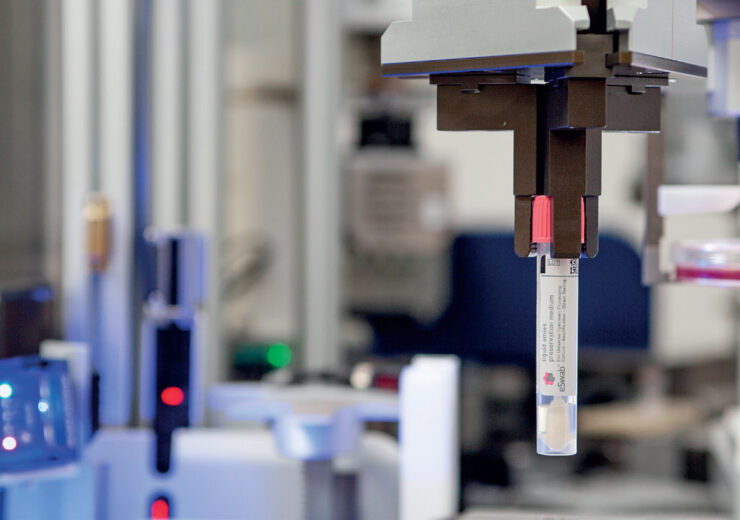Although microbiology laboratories have witnessed a surge in molecular biology techniques over the last few years, bacterial culturing still offers unmatchable advantages, especially when the most advanced tools are implemented. By addressing bacteriology preanalytics in four steps, Copan’s WISE approach leads to improved diagnostics for every lab.

Copan’s eSwab being processed by a WASP in a seamless, automated process.
Recent advancements in healthcare and Covid-19 pushed hard molecular biology into every microbiology laboratory. However, traditional culturing remains the gold standard for diagnosing most bacterial infections and still offers undoubted advantages. For example, it allows professionals to study the phenotype of bacterial populations and enables the assessment of bacterial interactions and antibiotic resistance, which is crucial for treating infections with the right antibiotics.
The solid primacy of culture in bacteriology is especially true when advanced tools and techniques are utilised to make the best of every microbiology lab. Putting aside unhandy gel-based and manual-processed specimens, Copan offers a four-step preanalytical solution that allows microbiology professionals to lower errors, reducing staff workload and time to result while increasing standardisation and efficiency of bacterial culturing.
To explore these four steps, let’s take Klebsiella pneumoniae – a Gram-negative bacterium whose multi-drug-resistant phenotypes represent a threat because of their proliferation in healthcare facilities and high mortality rates. To effectively diagnose a patient with this and other bacteria, the first step is sampling. Here, there’s little to say: the renowned FLOQSwabs revolutionised sample collection thanks to the superior adsorption and release that made respiratory, rectal or wound sample collection flawless.
The next step of the preanalytical workflow is the preservation and transport of the sample. Here emerges modern labs’ need for reliable liquid-base solutions offering the flexibility to use one device for multiple applications, from culture to virtually any molecular or antigen test.
One such product, the pioneer Copan eSwab, was introduced in 2006 and has been adopted by many laboratories worldwide for its reliability and quality. With its CLSI M40- A2-compliant liquid Amies formulation, Copan’s eSwab maintains the viability of aerobes, anaerobes, and fastidious bacteria from swab specimens and preserves bacterial and viral antigens and nucleic acids. It’s the go-to product for maintaining the viability of Klebsiella pneumoniae for up to 48 hours at room temperature and allowing additional molecular testing from the same sample. Finally, the 110 peerreviewed papers citing eSwab – compared to the three scientific citations of the leading competitor – is a clear picture of how the scientific community appreciates the eSwab.
Another advantage of liquid-based media is the transformation of solid swab specimens into a liquid, homogeneous suspension that can be easily handled and processed by automated specimen processors. This, and the success of eSwab, promoted automation – the third step to unbiased results – in microbiology labs. WASP, Copan’s solution that fully automates liquid-based bacteriology specimen processing, can flawlessly streak on the appropriate plate the collected Klebsiella pneumoniae sample.
Advancing to the last step of the path to improved diagnostics – data interpretation – we meet the WASPLab bacteriology automation ecosystem. This authentic full lab automation integrates hardware modules, image analysis software, and AI to cover the reading, interpreting, and picking activities. WASPLab module Radian Rapid- AST can rapidly assess the Klebsiella pneumoniae streaked plate for possible antibiotic resistance.
Copan’s approach to microbiology preanalytics, entailing different products designed to work in synergy in a consolidated 510(k) and IVDR-compliant workflow, has a name, W.I.S.E. (Workflow- Integrated System Environment). The success of this four-step approach is out in the open, with over 70m eSwab sold and more than 1,000 WASP and 200 WASPLab installed per year in labs worldwide. Proper sample collection and processing are essential for optimal diagnostics: Copan’s FLOQ, liquid-based microbiology, and WASPLab automation can step up your lab’s journey to unparalleled diagnostics.
